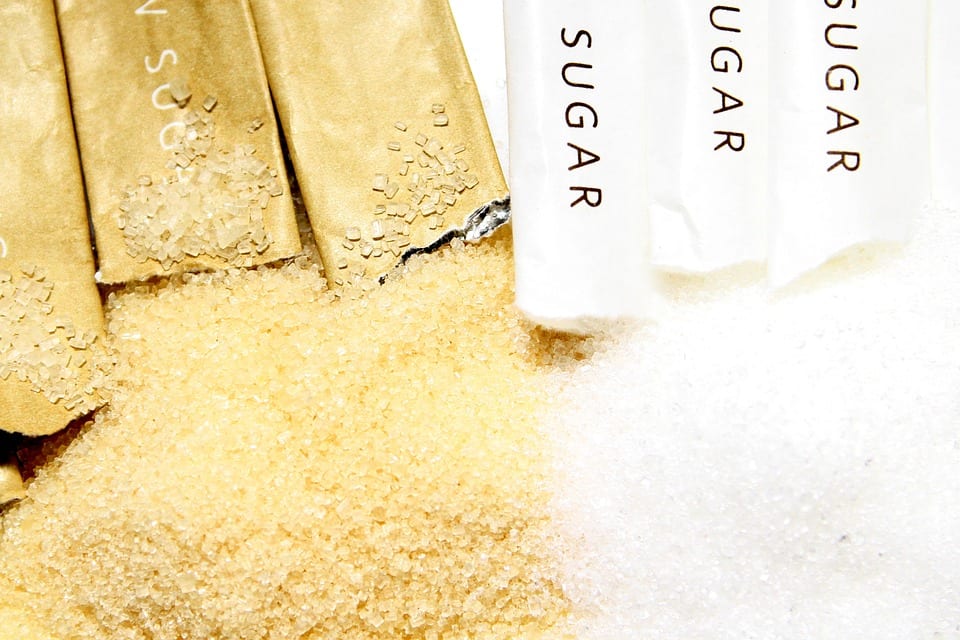 “Everything should be in moderation” is the motto of a healthy lifestyle. But not when it comes to salt and sugar, like you can choose either all or nothing. Both of these substances play an important role in our body: for example, the sugar your brain needs for energy, and salt — for normal muscle contraction. At the same time, their abundance is threatened by visible problems for our body. So the “surplus” which will cause us more harm?
“Everything should be in moderation” is the motto of a healthy lifestyle. But not when it comes to salt and sugar, like you can choose either all or nothing. Both of these substances play an important role in our body: for example, the sugar your brain needs for energy, and salt — for normal muscle contraction. At the same time, their abundance is threatened by visible problems for our body. So the “surplus” which will cause us more harm?
Sugar
Experts are not so suspiciously configured to sugars that exist in nature in a natural way, how to processed, refined sugar. Sugar can be found in milk, and 100% natural fruit juice, but along with that, you get more nutrients: vitamins, minerals, proteins (in milk) and polyphenols (juice). But tea with sugar and soda is useful to justify the existing sugar and calories a little. The same is true of most snacks, where there is almost no valuable nutrients (such as fiber, proteins, vitamins and minerals), and if there is, then they are added back artificially. It is not surprising that addiction to this form of snacking can lead to obesity and nutritional deficiencies.
Sugar, in whatever form he or is white refined, syrup, high fructose, cane, brown — has the same effect on our body: raises blood sugar, increases insulin production.
As a rule, the process of assimilation of sugars runs smoothly, but when sugar enters the body in excessive quantities, he began to stock surplus “sugar energy” in the form of fat. Spikes in insulin levels are dangerous that can lead to insensitivity to insulin, causing the body begins to produce more insulin. Over time, excess insulin and obesity can cause the development of type 2 diabetes that increase the risk of glaucoma, renal dysfunction and is the greatest risk factor of stroke and heart attack.
What’s worse, the consumption of large amounts of sugar, especially refined, may lead to changes in metabolism and cause chronic flares of inflammatory processes, is fraught with a whole galaxy of diseases. Fructose, for example, is processed only by the liver. If the load on it is too large, it can lead to an increased level of cholesterol, high blood pressure, fatty liver disease, metabolic syndrome and heart disease.
Salt
Salt our body needs to regulate fluid level and conduction of nerve electrical impulses. However, while the influence of sugar on the human body quite obviously, the action of salt on the still hotly debated. Healthy people, a moderate amount of salt is not dangerous and even necessary, but an excess can lead to unpleasant consequences. Current guidelines recommend that adults no more than 2,300 mg of salt per day (about a teaspoon). However, most people consume about 3,400 mg (almost a third more).
For a long time experts believed that salt delays in the body excess fluid, complicating the function of blood vessels and, as a consequence, increasing the pressure. High blood pressure threatens a dangerous heart problems, including heart attack and stroke, impaired vision and kidney. However, the link between salt and high blood pressure lately has come under increasing doubt. Study 2014, conducted among 8000 adults in France found that systolic blood pressure neither in men nor in women was not associated with the level of salt intake. The authors of the study concluded that the link between salt and the pressure is not so straightforward and much more complex.
More salt-sensitive people over the age of 50 or already suffering from high blood pressure. But, as mentioned above, in General, healthy people, a moderate amount of salt is not harmful. As for the problem of excessive consumption of salt, it is often associated not with the shakers, but from processed and prepared foods. Such food usually contains large amounts of fat and calories and fewer nutrients compared to food cooked at home. The abundance of salty high-calorie food can lead to weight gain and high blood pressure.
So what is worse?
No sugar, no salt by themselves are not dangerous, if you consume them in moderation, but if you compare one to one, the sugar has a more negative impact on our body. Despite the fact that salt is vital for its normal functioning, sugar — no. By the way, according to data published in the Journal diabetology, sugar is able to exacerbate the negative impact of salt: the higher the level of insulin in the blood sugar, the more salt and water is retained in the kidneys. What follows from this? High blood pressure.
To not go beyond what is permitted neither sugar nor salt, to build your diet around whole grains, dairy products and fruit and stay away from foods high in refined sugars and other processed ingredients.
Image credit: pixabay.com
